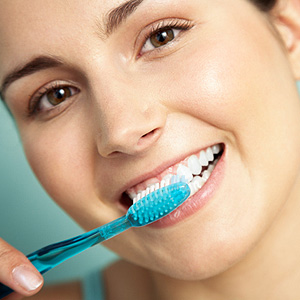The most important thing you can do for good oral health is brush and floss your teeth daily. But we’re not born knowing how to do either — they’re skills we must learn and practice to be effective in removing disease-causing bacterial plaque.It helps then to have a good understanding about technique, implements or problem situations you may run into. So then, here are answers to 4 typical hygiene questions that can help you improve your brushing and flossing.How often should I brush and floss? You should brush and floss at least once a day to prevent a buildup of plaque, the cause for both tooth decay and periodontal (gum) disease; if you have some form of dental disease, we may advise a different frequency. Be sure to use a gentle technique — it doesn’t take much pressure to remove plaque and being too aggressive can harm your gums and tooth enamel.When should I change my toothbrush? If you use it correctly (gentle vs. aggressive), your toothbrush should last several months. When you begin to notice the bristles becoming worn or splayed, it’s time to get a new, soft bristle brush.What kind of toothpaste should I use? You may have a preference among the dozens available when it comes to flavor and texture. But from a hygiene standpoint you should choose one that contains fluoride to strengthen enamel and an anti-tartar agent to inhibit the formation of hardened plaque deposits (calculus). While we’re on the subject, don’t rinse out the toothpaste right after brushing — you may be washing away fluoride too early, which takes time to work in contact with tooth enamel. Just spit it out.What if my teeth are sensitive when I brush? If you encounter problems when you brush, visit us to find out the cause. The most common cause for sensitivity is gum recession, usually due to gum disease, which has exposed the roots. This can cause discomfort when you encounter hot or cold foods, or pressure on the teeth when you brush. You should then receive treatment for the underlying condition; we may also recommend toothpaste that reduces tooth sensitivity. And, of course, be gentle when you brush.If you would like more information on brushing, flossing and other aspects of oral hygiene, please contact us or schedule an appointment for a consultation. You can also learn more about this topic by reading the Dear Doctor magazine article “Oral Hygiene Behavior.”
Recent Posts
- The Importance of Emergency Dental Care: Timely Intervention is Key
- Delaying Wisdom Teeth Extraction Can Lead to Serious Issues
- Can an Abscessed Tooth Kill You? Symptoms and When to Seek Urgent Care
- How to Recognize and Effectively Treat a Dental Emergency
- Gum Disease and Heart Disease: Understanding the Connection

